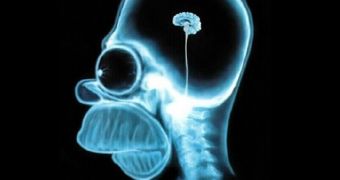Neuroscientists call 'brain noise' the random activity occurring in the human brain that does not bear any importance to the mental functions. Usually, children tend to have increased brain noise, but as an individual matures into an adult, the level decreases as the intuitive functions of the brain slowly drop and start showing more cognitive activity, which helps adults think more efficiently. Albeit a highly efficient brain is not always a healthy one, as the results of a new study carried out by researchers from Canada say.
"What we discovered is that brain maturation not only leads to more stable and accurate behaviour in the performance of a memory task, but correlates with increased brain signal variability. This doesn't mean the brain is working less efficiently. It's showing greater functional variability, which is indicative of enhanced neural complexity," said senior scientist Dr. Randy McIntosh of the Rotman Research Institute at Baycrest, the lead author of the study.
The research involved the study of the brain activity of 79 participants, separated into two main groups with ages between 8 to 15 and 20 to 33. The participants were subjected to memory tests involving accurate recognition of human faces, as electroencephalographs were recording the brain activity. An electroencephalography is a technique used to measure the activity of the brain of an individual in relation to different external stimuli.
The results clearly indicate that young adults did much better than children when it came to the visual facial recognition tests, and that their brain signals got noisier in the process. One could say that the brain noise is way the brain can achieve optimal performance.
"These findings suggest that the random activity that we think of as noise may actually be a central component of normal brain function," said Dr. McIntosh.

 14 DAY TRIAL //
14 DAY TRIAL //